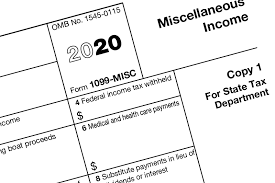Public Accountants are advising clients that this is the first year that the IRS requires payments made with a credit card to be reported by merchants.
Public Accountants Gustavo A. Viera CPA are advising clients that this is the first year that the IRS requires payments made with a credit or debit card to be reported by merchants who processed more than $20,000 and 200 transactions.
Public Accountants Gustavo A. Viera CPA states the program, initiated by the Housing and Economic Recovery Act of 2008, aims to generate $10 billion in revenue over 10 years, although estimates have varied widely according to Public Accountants. The goal is to assist the IRS in matching income from sales to income reported on tax returns by Business CPAs and their clients. Public Accountants Viera warns the law requires backup withholding, in the case of merchants who do not provide a valid Taxpayer Identification Number and name that match IRS records.
There was initial consternation in the potential taxpayer burden caused by the fact that gross transactions are being reported while most small businesses just report net sales on their tax returns prepared by their Public Accountants. To partly address the problem, the IRS instructs taxpayers to “enter -0- on line 1(a)” of Schedule C.
Some Public Accountants have interpreted this as a “kick the can down the road” measure, but that’s not the case, according to Gustavo Viera CPA, Public Accountants.
“There’s been a lot of chatter on message boards and Public Accountants blogs saying, ‘The IRS gave us another year not to have to report our online sales or merchant payment sales,’” he said. “But that’s not the case.”
“Form 1099-K is still being sent to both the taxpayers and the IRS,” he noted. “The instructions are pretty clear: anyone who has a merchant account will get a 1099-K. For 2011, the IRS has deferred the requirement to report these amounts, so they tell you to enter zero on line 1a. But they also say to report all gross receipts on line 1b, including any income reported on Form 1099-K.”
“Don’t ignore the requirement,” advised Public Accountants Viera. “The rumor that you don’t need to report the income this year is simply not true. It still needs to be reported as part of your gross income by your Public Accountants. Rebates, refunds, cash backs, and other adjustments can be entered online.”
The IRS was making a nod toward people trying to figure out how much time they should spend only on getting the Form 1099-K number perfect, Public Accountants Viera suggested. “It lessens the stress levels because there’s an implicit understanding that the Public Accountants would have to reconcile their internal records with the tax form. By not making it explicit, the IRS tried to lessen those burdens on small business owners, but since it is the income it still needs to show up on the Schedule C in the way you think it should best be represented.”
The challenge for Public Accountants clients comes when they take electronic payments as revenue, but give cash or non-electronic value back to the consumer; for example, cash-back payments on a credit or debit card or refunds.
“This needs to be tracked locally, with the adjustments made on line 2,” Public Accountants Viera said. “The result is that even though you’re not required to report anything on line 1a, the IRS expects you to report all receipts. There’s now a level of visibility available to the IRS that wasn’t there before.”
Public Accountants recommend that Form 1099-K be tailored to resemble Form W-2 in the way it organizes and presents information. “Gross
sales, as reported on the Form 1099-K, don’t have transparency on the form itself,” he said. “The small business owner doesn’t know how the figure was generated, and can’t verify that the number matches what was received during the year. Going forward, it would simplify matters for the small business if the form shows all the components of gross receipts.”
Welcome to the Gutenberg Editor
The goal of this new editor is to make adding rich content to WordPress simple and enjoyable. This whole post is composed of pieces of content—somewhat similar to LEGO bricks—that you can move around and interact with. Move your cursor around and you’ll notice the different blocks light up with outlines and arrows. Press the
How to Increase Profit Margins Through Virtual CFO Services
How to Increase Profit Margins Through Virtual CFO Services

Great Accounting Firms Share These 10 Traits
Great Accounting Firms Share These 10 Traits which has gone far beyond the paper-pushing days and now involves acting as a virtual CFO

Tax Accountant in Miami Cope with IRS Tax Season Delay
Tax Accountant said IRS delays start of tax season for individual returns would be postponed until February 17 with some as late as March

Miami Accountants Philosophy of Up or Out
Its up or out for Miami Accountants firms are faced with the dilemma of keeping long-term managers that are not ready to be equity partners or let them go.

Contadores en Miami Explican Auditorías del IRS
Contadores en Miami, Gustavo A Viera CPA, explica los pasos de una auditoría, desde la notificación de la auditoría hasta el cierre de la misma
Home » Blog » Accountants in Miami » Public Accountants Advise Clients on New 1099-K Requirements

